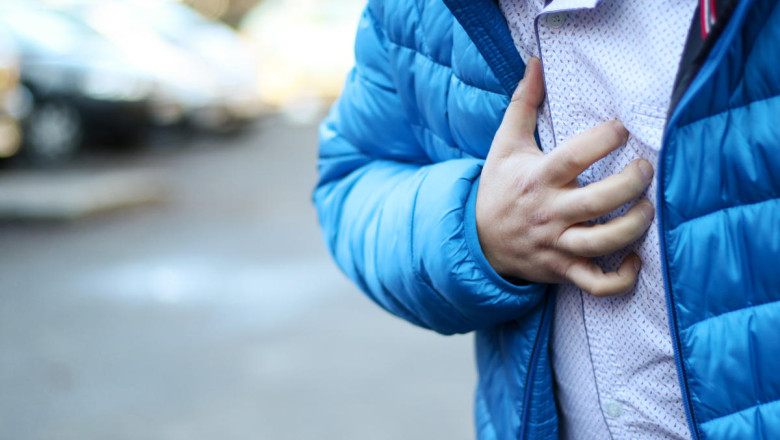
views
Rates of heart attacks in the U.S. spike every December and peak on Christmas. (Getty Images)
It’s no secret that heart attacks are more common around the holidays. Studies like this one from the American Heart Association (AHA), consistently find that more people in the U.S. have and die from heart attacks on Christmas Day than on any other day of the year. The yearly spike is often blamed on holiday stress. Experts say that stress does contribute to the elevated risks, but there’s more at play.
Don’t worry, you don’t need to skip the holiday celebrations. But knowing how cold, cocktails and lavish home-cooked meals can affect your cardiovascular system can help you prepare for your heart-healthiest holiday. Here’s how.
You can’t necessarily feel the ways colder temperatures impact your cardiovascular system, but they’re very real, Dr. Patricia Vassallo, a Northwestern University Feinberg School of Medicine cardiology professor, tells Yahoo Life. “The cold weather does affect your biology,” she says. “The blood vessels constrict, and that raises the blood pressure and makes it harder for your heart to pump blood to your body.”
That’s true even in typically warmer climates where the temperature never drops particularly low. In Los Angeles, for example, where daily low temperatures rarely drop below 40 degrees Fahrenheit, there are about a third more heart attacks in December and January than in the summer months.
For those in colder climes, snow can pose added risks. “Think about somebody who is unaccustomed to the labor of shoveling snow, and all of a sudden is faced with a covered driveway,” Dr. Matthew Tomey, chair of the AHA’s cardiovascular intervention science committee and a cardiologist at the Mount Sinai Fuster Heart Hospital, tells Yahoo Life. For someone who isn’t doing regular, intense exercise, the strenuous activity can be a “triggering event” for cardiovascular trouble, he says. Plus, you might be less likely to recognize warning signs such as chest pain and shortness of breath while you’re already feeling the burn from shoveling heavy snow or shivering in the cold, adds Vassallo.












Comments
0 comment